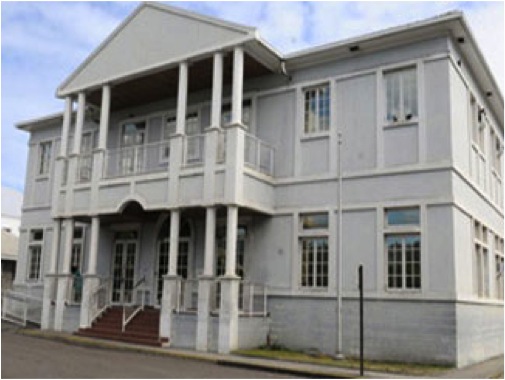Above: the Lee Llewellyn Moore Judicial and Legal Service Complex
By the Caribbean Journal staff
St Kitts and Nevis lawmakers have replaced the federation’s 135-year-old Evidence Act, an original British statute.
The new law, which passed the National Assembly unanimously, makes provisions for DNA and electronic evidence.
“Over time the Act has been amended several times, however, it would be understandable that as time and society have evolved, that several crucial areas of the law of evidence are not directly or specifically provided for under the current legislation,” said Speaker Curtis Martin.
Martin said the breadth of issues that were not provided for in the original act necessitated a completely new replacement.
The law has several large-scale effects, including greater protection for witnesses. Martin mentioned a recent case where a defendant charged with assassinated a police officer in the Federation had orchestrated the murder of a witness in the case.
The defendant was found guilty of both murders.
“There have been many cases where eye-witnesses have retracted their statements made at the preliminary inquiry,” he said.
Under the new act, there are several reasons why witnesses may not legally be able to give evidence — especially young children who cannot understand questions.
It introduces the concept of “compellability,” which deals with the question of whether, as a matter of law, a witness can be obliged to give evidence when he or she does not wish to do so.
“The general rule is that competent witnesses are also compellable, but there are some circumstances in which competent witnesses cannot be forced to give evidence against there will,” he said.
Another portion of the bill provides for the court to have the power to grant witness anonymity orders, however it is a provision Martin said would be granted only in “exceptional circumstances.”
According to the bill, a “vulnerable” witness may be allowed in exceptional cases to testify while being screened off from the defendant or to testify from a place outside the courtroom. The restriction on the power hinges on ensuring that the defendant’s right to a fair trial is not prejudiced.
While a portion of the bill provides for DNA evidence, Martin said a comprehensive piece of DNA legislation would soon follow.
